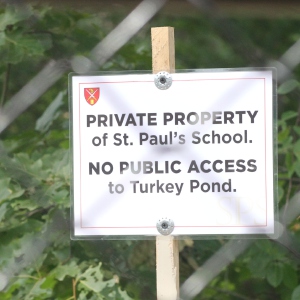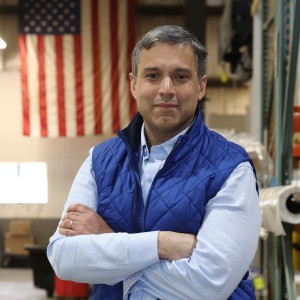The booming sounds on Boylston Street in Boston 10 years ago told runners something was happening. But what?
| Published: 04-17-2023 2:01 PM |
To the faster runners who had already crossed the finish line and the slower ones still on the course, the explosions heard in Boston 10 years ago Saturday could have been attributed to a celebration of some sort.
Yes, they worried about something more sinister, but the sun was out, the temperature cool, the perfect day to run the Boston Marathon. The Red Sox had their traditional home game at Fenway Park, with the 11 a.m. starting time giving baseball fans the chance to file out after the game and watch the runners pass in Kenmore Square.
Patriots Day is a festive day. Why not light a few firecrackers to celebrate?
“I thought it was weird to have fireworks but that’s what I thought, and I didn’t know,” said Krista Machon of Northwood, who’s 36. “People started talking, and we had no clue.”
She was one of the thousands of runners who, 10 years ago on Saturday, heard the blasts and for hours had no idea of the severity of the situation. Machon was a block away at 2:49 p.m., when the first bomb exploded on Boylston Street.
She was close enough to hear the boom, far enough not to panic. At the time, Machon was waiting in line with her sister to use a bathroom, still oblivious to the historic scene unfolding close by.
Reality hit home like never before. Those were bombs. Two of them. Pressure cookers packed with explosives, nails and other hard things, lethal when projected through the air at high speeds.
Three people were killed near the finish line. They were spectators standing behind barriers who were cheering for more than just their loved ones in the 26.2-mile race. They cheered for everyone in sight, and that’s what the marathon here is all about.
Article continues after...
Yesterday's Most Read Articles
 New Concord apartments open in former First Congregational Church
New Concord apartments open in former First Congregational Church
 Inside EFAs: How school vouchers have fueled an enrollment boom at Christian schools across New Hampshire
Inside EFAs: How school vouchers have fueled an enrollment boom at Christian schools across New Hampshire
 St. Paul’s School won’t reopen public access to Turkey Pond
St. Paul’s School won’t reopen public access to Turkey Pond
 ‘Bittersweet’: The Post on Main Street closes Friday
‘Bittersweet’: The Post on Main Street closes Friday
 Goodwell Foods takes over Rustic Crust private label frozen pizza
Goodwell Foods takes over Rustic Crust private label frozen pizza
 Messy parking around Concord’s bus terminal won’t get less messy any time soon
Messy parking around Concord’s bus terminal won’t get less messy any time soon
But, suddenly, 10 years ago, a rock-solid Boston tradition had been infiltrated, shattering a sense of innocence and courage that the race had always represented. The whole country watched the explosions, the manhunt, the empty Boston streets and bridges in a scene that would have fit nicely in a movie about the apocalypse.
Meanwhile, thousands of runners who heard the blasts were far enough away to escape the fury and shock. Henniker native Morgan Kennedy, who has since moved to Connecticut, ran cross country and track at Hillsboro-Deering High School. He was there 10 years ago. He agreed with Machon.
“I heard two pops,” Kennedy said. “It did not seem urgent at all. An ambulance went by, and I thought it was for a runner going through a rough patch. But we never got to the finish line. A cop told us that we had to stay clear, that the town was closing.”
Closing? Boston? The signs that something had gone terribly wrong kept surfacing. Cell service quickly went dead. T stops went dark. Bridges and major roadways closed.
And so many still had no idea why.
“We thought maybe it was a gas line, but we didn’t know it was a bomb,” said 54-year-old Ron Abramson of Bow. “We knew something was up from chatter around us.”
News that people had died in a terrorist attack at the marathon’s finish line eventually broke through, fueling more panic, since there was no way to contact family and friends. No city traffic permitted. No way to call out.
“Within one mile from the finish zone, no one had told us what happened,” said Abramson, who said he’s run about 35 marathons. “The course went from no longer looking like it was part of the race. There were just people milling about in the street, and I knew something was very wrong. We walked a long way because I wanted to find my fiance.”
For Scott Graham of Moultonboro, Monday will mark the 37th year in a row in which he’s run Boston. In 2013, he heard the news after finishing the race. He was socializing at the Park Plaza Hotel. Then he had a scary thought.
“I had a son who was going to college at Wentworth, and he was at the finish area,” Graham said. “But when the bombs went off, he had gone to school, but we didn’t know. We couldn’t get a hold of him. No phone service.”
It was that kind of day. There were more than 5,600 runners still on the course when, 4:09 into the race, a pressure-cooker bomb hidden inside a backpack exploded. Another went off 13 seconds later.
Three people were killed: Krystle Campbell, age 29; Lu Lingzi, 23; and 8-year-old Martin Richard. Photos of Richard wearing a baseball hat and a toothy grin, and another showing him with a crayon-drawn message that read, “No more hurting people. Peace,” made America cry. Sixteen people lost their legs. The youngest amputee was a 7-year-old girl.
A four-day manhunt ensued. The two killers, of Chechen descent, were stopped in Watertown. One was shot and killed and the other is doing life in prison. Before that, however, Watertown looked like a war zone. Gun battles lasted for minutes at a time, and pipe bombs were tossed from the killers’ car.
Those were long days – April 15-18 – 10 years ago. Most if not all runners probably reflect now and then, about being in the bomb area at 2:59 p.m. What might have happened to them?
Abramson met friends after the race. The usual bar for the group’s post-marathon outing. They wanted to hear the news. Then they needed each other, before driving home, many of them in silence, still absorbing the news.
“We all knew we had as much of a chance of getting hurt as anyone else,” Abramson said. “We needed to be together, see friends. When we were ready to go, we left with a very heavy heart.”
]]>







 Bow offers water to Hooksett plant, asks Concord to help fix its supply
Bow offers water to Hooksett plant, asks Concord to help fix its supply Hyper-local, good-news-only paper in Andover is closing
Hyper-local, good-news-only paper in Andover is closing Concord Christian Academy celebrates accomplishment and faith at graduation ceremony
Concord Christian Academy celebrates accomplishment and faith at graduation ceremony
